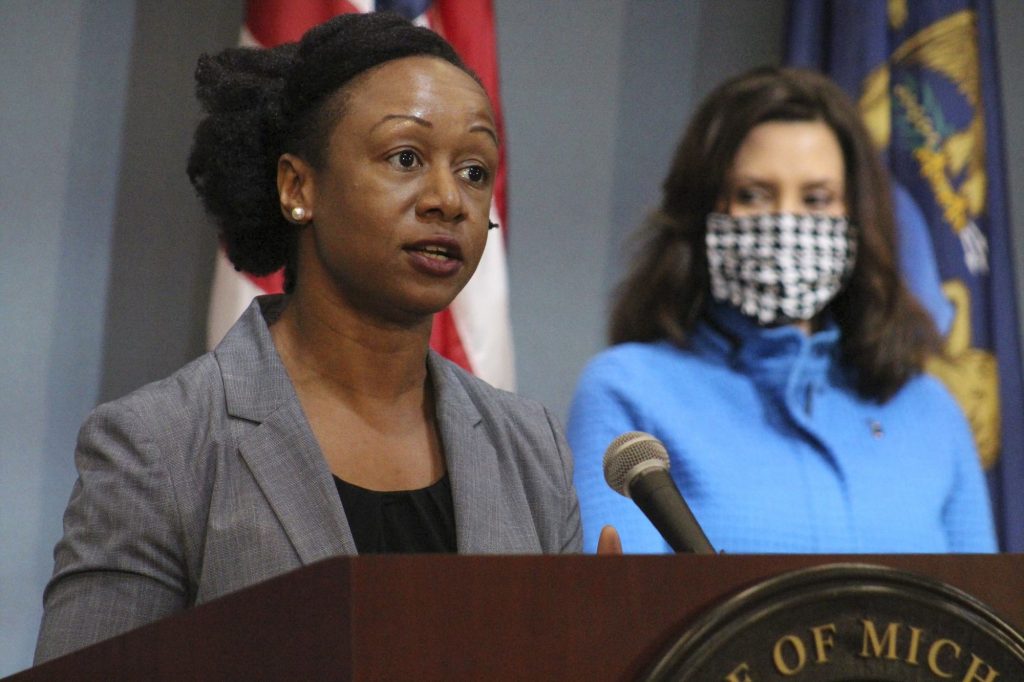Top Michigan Health Official Khaldun Leaving for New Job
She will be replaced at least temporarily by Dr. Natasha Bagdasarian, a senior public health physician in the Department of Health and Human Services who oversaw the state’s COVID-19 testing strategy.

LANSING, Mich. (AP) — Dr. Joneigh Khaldun, Michigan’s chief medical executive and a key adviser to Gov. Gretchen Whitmer during the coronavirus pandemic, is leaving state government for a new job in the private sector.
She will be replaced at least temporarily by Dr. Natasha Bagdasarian, an infectious diseases expert at the state Department of Health and Human Services who oversaw COVID-19 testing strategy. Bagdasarian, who will take over on Oct. 1, most recently has been on sabbatical to work with the World Health Organization on coronavirus planning.
“At the height of COVID-19, we stood side by side to keep our state safe through one of the most difficult periods in our lives,” Whitmer said in a statement Friday.
Khaldun, who is Black, is credited with recognizing the virus’ disparate impact on communities of color early on and co-chairing a task force designed to reduce disparities. She often participated in the Democratic governor’s COVID-19 news conferences, backing restrictions, reporting data trends and recommending how to stay safe.
Khaldun was appointed as chief medical executive and chief deputy health director in March 2019. She also is a practicing emergency physician at Henry Ford Hospital in Detroit.
“This work has been the honor of my life,” she said in a statement. Her new job will be revealed soon.
Whitmer has begun a search to select a permanent chief medical executive. Bagdasarian, whom she called a “world-renowned medical expert with a wealth of experience,” is expected to be a candidate.
“I know we have a committed, resolute and untiring team that cares deeply about public health and moving past this current crisis,” Bagdasarian said.
The transition comes as Michigan’s two-week case rate is faring better than in all but 10 states, according to Johns Hopkins University. The seven-day average as of Wednesday, 3,230, was way above the summer low but still under half the spring peak — when the state’s outbreak was the worst in the country.
In August, amid questions about why Whitmer did not reinstate a masking requirement in schools, Khaldun told reporters that she had told the governor and the state health director that a mandate would likely lessen the spread of COVID-19. But she added there were other factors at play.
Whitmer instead has left the mask decision to local health departments and school districts.
Trusted, accurate, up-to-date.
WDET strives to make our journalism accessible to everyone. As a public media institution, we maintain our journalistic integrity through independent support from readers like you. If you value WDET as your source of news, music and conversation, please make a gift today.
